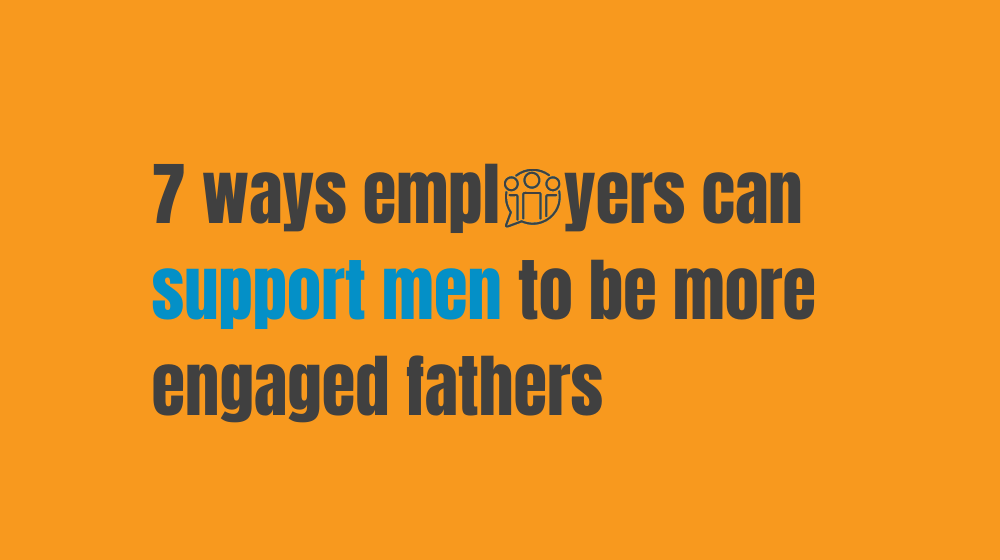Family-friendly workplace policies can make a big difference in expanding choices for both men and women
Balancing work and family isn’t easy for anyone: while women are still too often expected to shoulder the bulk of caregiving responsibilities at home, at the expense of their career advancement, men face pressures in the opposite direction.
According to Promundo’s 2019 global report, State of the World’s Fathers, most fathers want to be more involved in their children’s lives and invested in their family relationships, but are unable to do so because of a lack of supportive gender and social norms, policies and structures within their workplace.
Family-friendly workplace policies can make a big difference in expanding choices for both men and women, removing pressure around decisions of if and when to have children, and allowing everyone to fulfil their full potential at work and at home, to the benefit of the entire economy and society.
Investing in such policies makes good business sense for employers too: it leads to happier employees who see themselves as valued by the company, resulting in less attrition and absenteeism and higher productivity. And it ensures a more equal, inclusive workplace, while giving companies a competitive advantage in attracting and retaining high-potential women and men.
Here’s seven practical ways in which employers can support men to share the unpaid care work, be more engaged fathers and promote gender equality.
1. Grant flexible work arrangements to all staff, including men
Flexible work arrangements support men’s caregiving role by giving them greater freedom to determine when and where to fulfil their job responsibilities. This allows them to respond to the needs of their family and do their fair share of unpaid care work while still meeting their workplace commitments.
2. Provide childcare support to fathers too
Supporting fathers, either financially or by setting up workplace childcare facilities, allows men to take on an equal share of caregiving and family responsibilities, especially when childcare hours coincide with work hours. By facilitating childcare arrangements, this also results in lower absenteeism and stress.
3. Offer paternity and parental leave, and incentivize fathers to take it
Providing paid paternity leave and encouraging men to use it enhances gender equality at home and may reduce the barriers to parenthood. It can have positive effects on children’s development by allowing fathers to bond and be more engaged with their kids, and helping build men’s confidence around parenting. Paid leave is also increasingly shown to be good for business, improving retention of employees, increasing job satisfaction and productivity, minimizing absenteeism and turnover, and reducing training and staff-replacement costs.
4. Ensure men know about available family policies and how to use them
Men are not always willing to ask about available family policies and parental benefits due to social norms that don’t envision them within a caregiving role. Ensuring that male employees know what supportive arrangements are available and how they can utilize them will help encourage more men – and thus, their entire families – to receive the benefits of such policies.
5. Create a workplace culture that values men as fathers and caregivers
Social norms, roles and stereotypes that place men in the breadwinner role and do not value their contributions as caregivers can limit men’s confidence and capacity to be engaged fathers and partners. Workplaces can help address that by ensuring zero tolerance for discrimination against fathers, and by taking measures such as creating a peer-support network for working fathers.
6. Encourage senior male staff to lead by example
Many men don’t take parental leave because they fear it will have a negative impact on their career. Male managers can help address this by being role models: their taking paternity leave and using other parental benefits normalizes these choices for all male employees.
7. Recognize the benefits to employees and the company
Many of the skills developed by parenthood – leadership, ability to adapt to change, time management – can be transferred to the workplace. By recognizing these skills as valuable and investing in both male and female parents and caregivers, businesses can benefit from a more productive and skilled labour force with greater employee retention.


